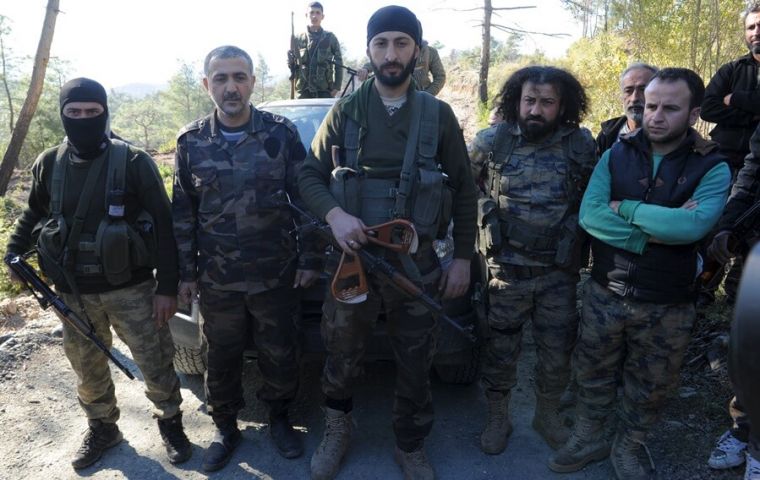Russia bolsters forces in Syria, bombards rebel positions near Turkish border a day after shooting down of its warplane

The possibility of an armed confrontation between Turkey and Russia continued to heighten after the Russian government beefed up its military assets at a Syrian base just a few miles from the Turkish border.
Russian President Vladimir Putin himself ordered the deployment of S-400 missiles to boost his country's state-of-the-art air defence system at the Hemeimeem air base in Syria's coastal province of Latakia, a day after Turkey downed one of Moscow's warplanes.
The Russian military camp is located just 30 miles away from the border of Turkey. To further flex its military muscle, Russia also moved its navy missile cruiser Moskva closer to the shore, in an attempt to help protect Russian warplanes flying over the already tense area.
Russian Defence Minister Sergei Shoigu did not mince words about his country's intention in moving its military assets.
"It will be ready to destroy any aerial target posing a potential danger to our aircraft," Shoigu said during a meeting with military officials, as quoted by Fox News.
The Russian defence minister also announced that his nation is cutting all military ties with Turkey. He also said that from now on, Russian bombers will always be escorted by fighters on combat missions over Syria.
At the same time, Russian forces have begun heavy bombardment of areas controlled by Turkmen insurgents in Latakia, very close to the area where Russia's warplane was shot down.
At least 12 airstrikes hit the area on Wednesday, according to the British-based Syrian Observatory for Human Rights.
Putin has already warned of "serious" consequences following the downing of the Russian Su-24 fighter jet. He also called the incident a "crime" and a "stab in the back," and even went as far as calling Turkey an "accomplice of terrorists."
Turkish Prime Minister Ahmet Davutoglu, meanwhile, was more diplomatic in his tone, calling Russia a "friend and neighbour." He also said the relationship between the two countries cannot be "sacrificed to accidents of communication."











